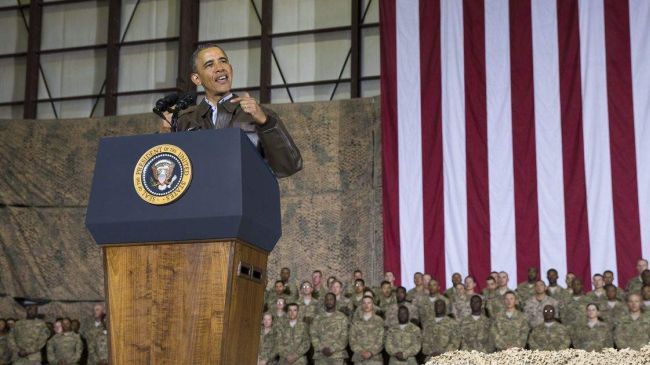Great Satan US wants 9,800 troops in Afghanistan

 Senior Obama administration officials have said the US president is to seek to keep 9,800 US troops in Afghanistan beyond 2014.
Senior Obama administration officials have said the US president is to seek to keep 9,800 US troops in Afghanistan beyond 2014.
The officials, who spoke on condition of anonymity, said Obama will announce the plan himself in a statement from the White House in Washington, DC, on Tuesday afternoon.
Obama, who made a surprise 32-hour trip to Afghanistan to visit US troops, said during a speech at Bagram Air Field outside Kabul on Sunday that he would soon make an announcement on troop presence in Afghanistan.
“After all the sacrifices we’ve made, we want to preserve the gains that you have helped to win,” he said. “We’re at a pivotal moment.”
Washington needs to sign a bilateral security agreement with Kabul to be able to keep troops in the country beyond 2014. Despite US pressures, Afghan President Hamid Karzai has refused to sign the agreement.
Karzai has been saying that the Afghan nation cannot approve the agreement without guarantees that the US will halt its deadly airstrikes on civilians.
However, US officials say they are confident that Afghanistan’s next president will agree to sign the deal.
The United States and its allies invaded Afghanistan in October 2001 as part of Washington’s so-called war on terror. The offensive removed Taliban militants from power, but after all these years, the foreign troops have not been able to establish security in the country.
Thousands of civilians, including women and children, have been killed and millions more displaced as a result of the US-led war.







